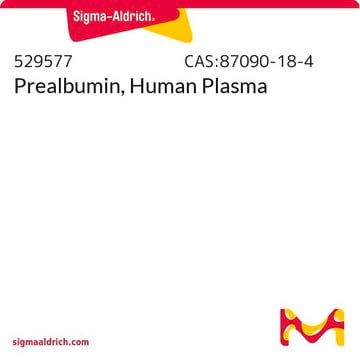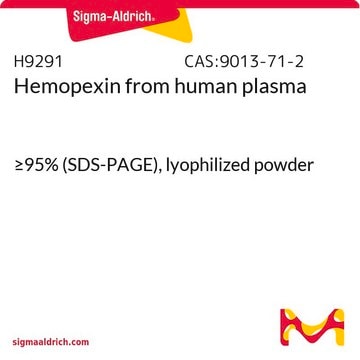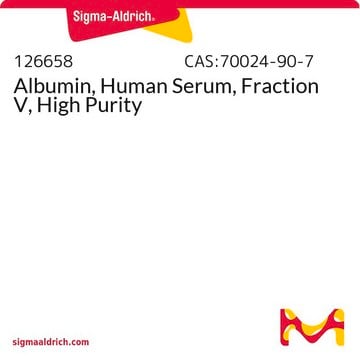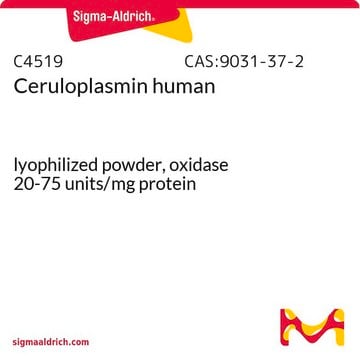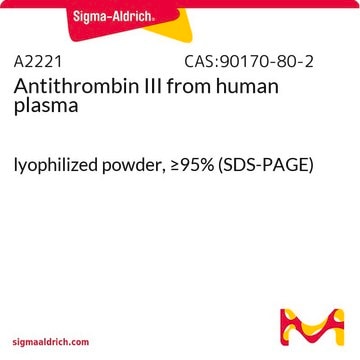P1742
Prealbumin from human plasma
lyophilized powder
Synonym(s):
Thyroxine binding prealbumin, Transthyretin
About This Item
Recommended Products
biological source
human plasma
Quality Level
Assay
≥95% (SDS-PAGE)
form
lyophilized powder
technique(s)
immunoelectrophoresis: suitable
immunoprecipitation (IP): suitable
solubility
H2O: soluble 1 mg/mL
ε (extinction coefficient)
13.5 at 280 nm at 1%
UniProt accession no.
storage temp.
−20°C
Gene Information
human ... TTR(7276)
Looking for similar products? Visit Product Comparison Guide
General description
Application
Biochem/physiol Actions
Packaging
Physical form
Storage Class Code
11 - Combustible Solids
WGK
WGK 3
Flash Point(F)
Not applicable
Flash Point(C)
Not applicable
Personal Protective Equipment
Certificates of Analysis (COA)
Search for Certificates of Analysis (COA) by entering the products Lot/Batch Number. Lot and Batch Numbers can be found on a product’s label following the words ‘Lot’ or ‘Batch’.
Already Own This Product?
Find documentation for the products that you have recently purchased in the Document Library.
Customers Also Viewed
Our team of scientists has experience in all areas of research including Life Science, Material Science, Chemical Synthesis, Chromatography, Analytical and many others.
Contact Technical Service